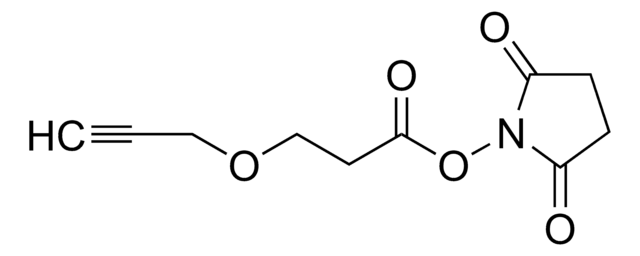902551
BocNH-PEG4-acid
Synonym(s):
2,2-Dimethyl-4-oxo-3,8,11,14,17-pentaoxa-5-azanonadecan-19-oic acid, Boc-NH-PEG4-CH2COOH
About This Item
Recommended Products
form
liquid
reaction suitability
reaction type: Pegylations
reagent type: cross-linking reagent
refractive index
n/D 1.4641
density
1.1395 g/mL
functional group
Boc
amine
carboxylic acid
storage temp.
−20°C
SMILES string
OC(COCCOCCOCCOCCNC(OC(C)(C)C)=O)=O
application
Technology Spotlight: Degrader Building Blocks for Targeted Protein Degradation
Other Notes
Legal Information
related product
Storage Class
10 - Combustible liquids
wgk_germany
WGK 3
flash_point_f
Not applicable
flash_point_c
Not applicable
Certificates of Analysis (COA)
Search for Certificates of Analysis (COA) by entering the products Lot/Batch Number. Lot and Batch Numbers can be found on a product’s label following the words ‘Lot’ or ‘Batch’.
Already Own This Product?
Find documentation for the products that you have recently purchased in the Document Library.
Our team of scientists has experience in all areas of research including Life Science, Material Science, Chemical Synthesis, Chromatography, Analytical and many others.
Contact Technical Service








